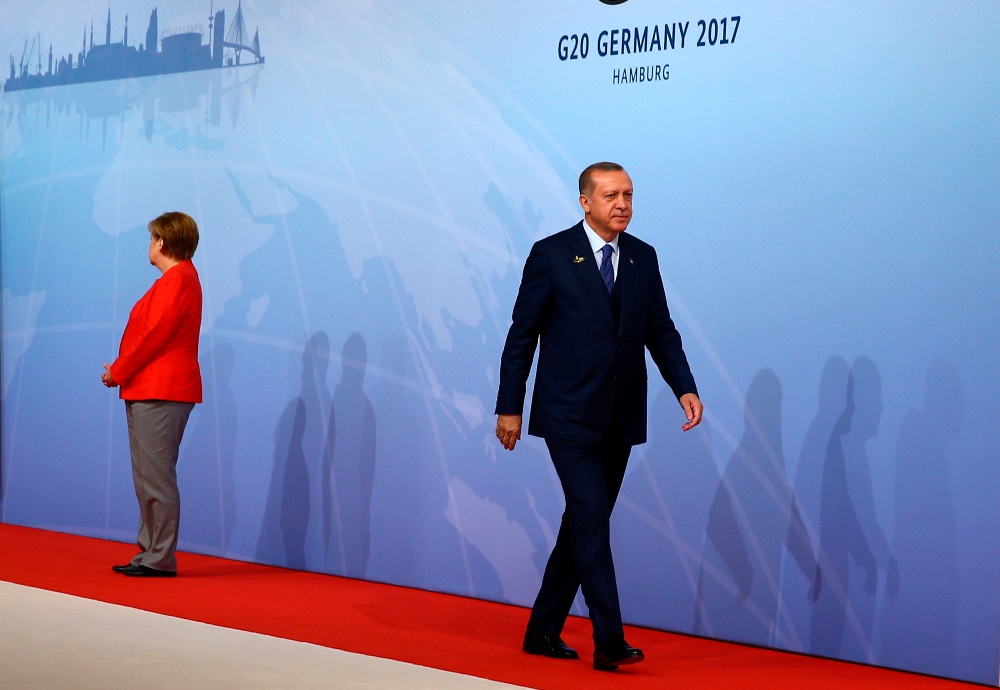Tensions between Germany and Turkey Rise

What is the source of the tensions?
According to the German government, the strain in relations with Turkey stem from the Turkish authorities’ attempts to exert pressure on Germany to prompt it to extradite Turkish officers, diplomats, and judicial staff accused of participation in the failed coup attempt of July 2016. According to German daily newspaper Süddeutsche Zeitung, around 400 Turks have applied for asylum in Germany. Turkey also accuses Germany of a lack of support in its fight with the Kurdistan Workers’ Party (PKK), considered a terrorist group by both countries. The tensions in bilateral relations also have increased over German government limits on Turkish officials’ ability to conduct political campaigns in Germany, home to hundreds of thousands of Turk voters.
Will Turkey fulfil Germany’s demands?
The German government claims that 22 German citizens have been arrested in Turkey on political charges. It demands their immediate release and a fair trial. The Turkish Ministry of Foreign Affairs considers these calls outside intervention in the Turkish judicial process. President Erdoğan has commented along those same lines. The statements may mean that the Turkish government is not willing to compromise. However, its stance may be influenced by the change of Germany’s policy towards Turkey. Revision of travel warnings for German tourists visiting Turkey, a lack of a German government guarantee for corporate investments, and a review of arms deals between Turkey and Germany may be especially painful for the former. The pressure may result in the release of at least those German citizens who do not have dual citizenship.
Will German authorities meet Turkey’s demands to hand over the alleged coup plotters and in the fight against the PKK?
It is doubtful Germany would accelerate the extradition of people accused by the Turkish government of taking part in the coup. This stems from the limited influence of the German government on the judiciary and Germany’s concerns regarding Turkish democracy and the rule of law (Germans doubts that under the current circumstances, those people will receive a fair trial in Turkey). Yet, it is possible that the German government will intensify actions directed at the PKK’s activities in Germany, principally terrorist propaganda. Foreign Minister Gabriel signalled this possibility in June when he claimed that the Turks’ charges regarding the PKK’s excessive visibility in Germany was correct.
Will the tensions between Germany and Turkey influence NATO?
The strain between Turkey and Germany will continue to impair Alliance unity. The Turkish government has denied German parliamentarians the right to visit Bundeswehr stationed at the Konya base. This may force Germany to relocate the troops (in June, in similar circumstances, Germany decided to relocate 250 troops from İncirlik Air Base to Jordan). This may lead to questioning of Turkey’s role in NATO, especially because other dimensions of Turkish government policy (such as its apparent willingness to buy S-400 missile systems from Russia) has raised serious concerns among the Allies.
How will German-Turkish tensions influence EU-Turkey relations?
Germany may encourage the Member States to take a firm stance on Turkey. Minister Gabriel claimed that under the current circumstances he couldn’t imagine beginning talks about a revision of the custom union between the EU and Turkey. Moreover, he declared that the German government would talk with European partners about a revision of pre-accession funds granted to Turkey (IPA II). Most likely, this would result in increasing EU-Turkey tensions, which eventually may lead to ending the accession negotiations process. However, it is also possible that economic pressure from EU countries, if in unison, may prompt the Turkish government to make concessions and strengthen the EU’s role in European-Turkish relations.



